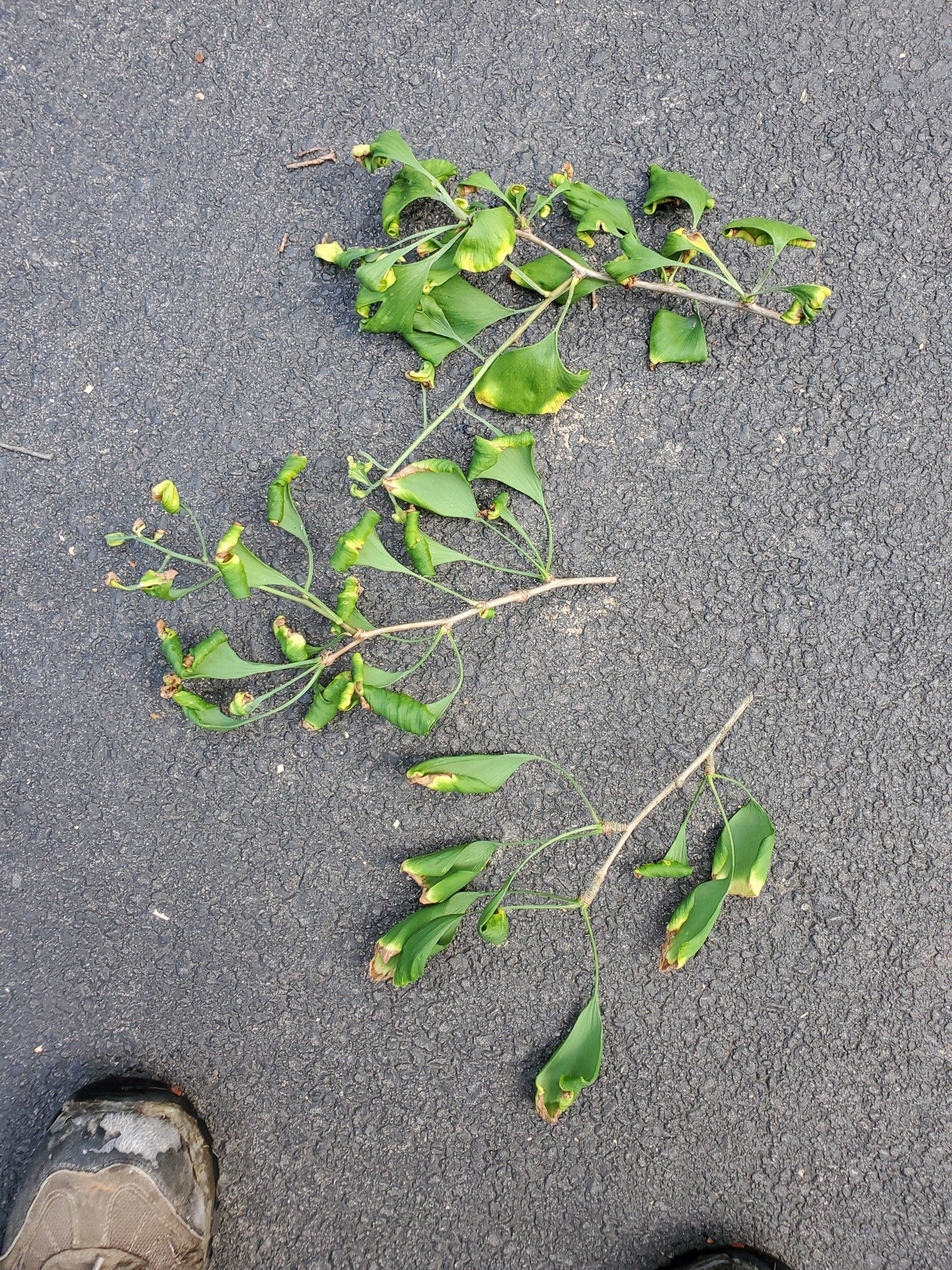Diagnosing plants affected by herbicides

Determining if non-target herbicide injury is the cause of a plant health issue involves assessing multiple types of evidence. The investigator sees the end result of an issue and works backward to try to determine the cause. Diagnosing herbicide injury requires accurately describing symptoms and finding as much information about site history as possible. In some cases, the cause of the problem may be very straightforward, and in other cases more investigation, research, and critical thinking is needed. There are four important questions to ask when diagnosing herbicide injury.
What are the Plant's Symptoms?
First, determine what the symptoms of concern are. Describe symptoms (i.e. epinasty, stunting, chlorosis, necrosis, etc.) and where they appear on the plant (i.e. old growth or new growth, leaves, stems, roots, etc.). Compare the symptomatic plant to “healthy” plants from the same area. Also look at nearby fields or home landscapes. If similar symptoms are occurring in areas managed by different people, the issue could be environmental or biotic rather than herbicide related. Also check if multiple plant species have the symptoms. If a single species is symptomatic among multiple species, then symptoms may not be herbicide related.
Herbicide injury to plants has become commonplace in many properties throughout the United States and in many cases, the exposure can and will cause plant death if the dosage rates have caused significant vascular injuries internally to the plant. But in certain chemical exposure events plants can recover with proper care. Keep in mind most herbicide injuries and chemical exposure are preventable.
Mark Webber's Arboricultural & Horticultural Consultancy LLC has investigated herbicide injuries to plants and trees caused by a wide range of herbicides including synthetic auxins, Amino Acid Inhibitors, Chlorophyll Inhibitors, Contact Herbicides, Root Inhibitors, and other materials including salt, lead and other unique plant toxins. Mark Webber himself has investigated thousands of cases involving chemical injuries to plants since 1997 and has a unique understanding of modes of action, investigative techniques, and if a plant will survive the given exposure. If your plants don't look normal and you suspect your plants have been damaged by chemical agents call our office or fill in the form below and we will contact you shortly.



